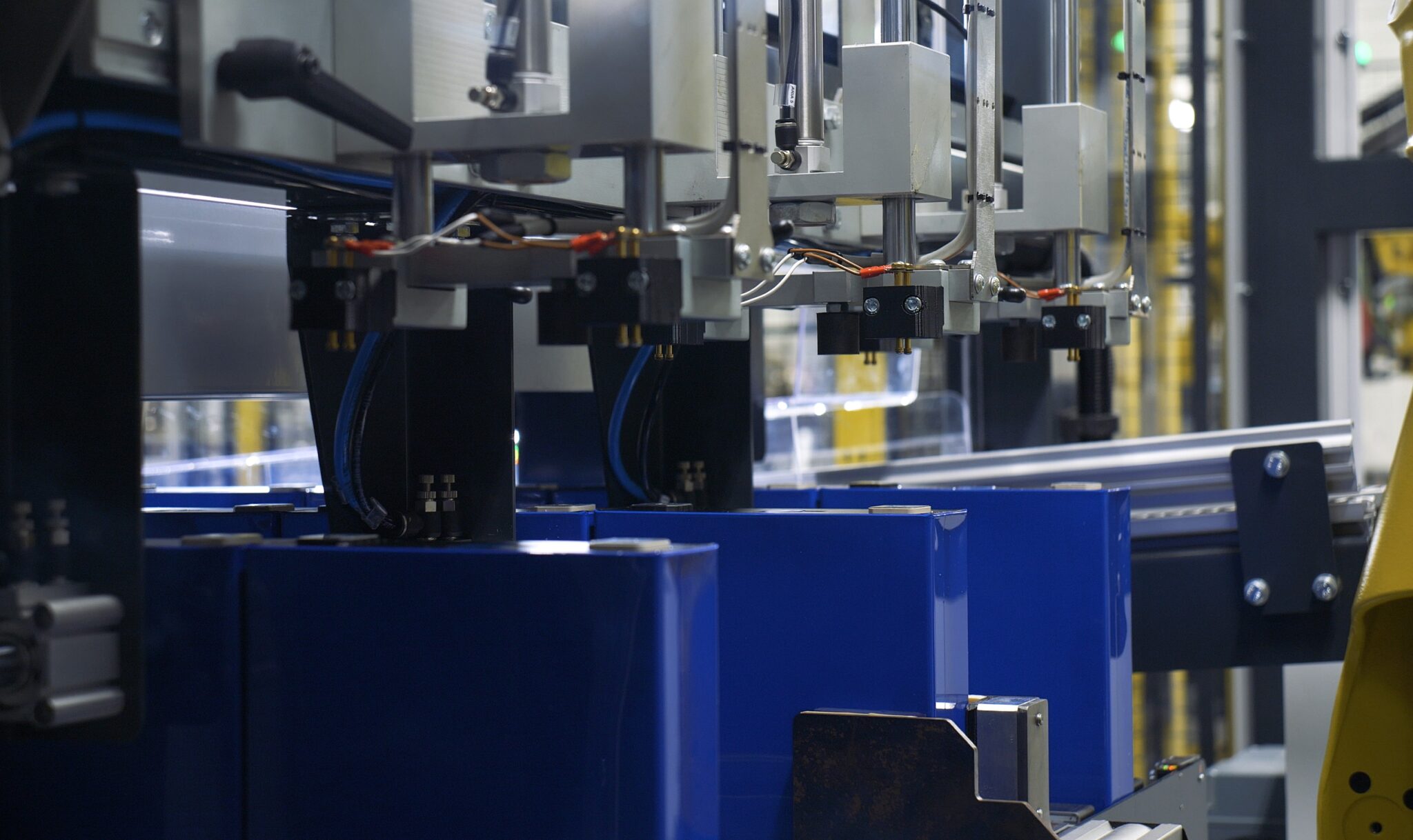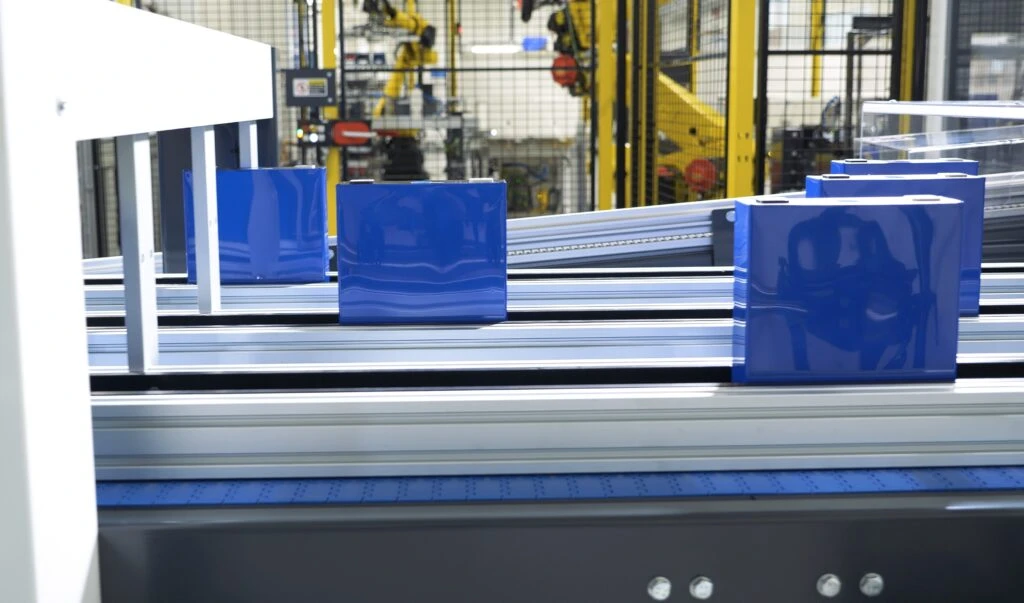Flash Battery, an Italian company founded in 2012 and specialized in the engineering and production of high-performance lithium batteries for industrial use, has announced the launch of its new laser-welding automated module assembly line, reinforcing its leadership in both the national and international markets. The result of an investment of over €6 million, the new line is the core of the company’s recent headquarters expansion, which added 2,200 square meters dedicated to a fully automated area for battery module assembly. This technologically advanced department is designed to house the entire welding and mechanical integration process within a controlled environment. The annual production capacity reaches 90,000 modules, making this not only the most advanced but also the most productive line in Italy for assembling prismatic cell modules.
Centralized production expertise
Flash Battery has chosen to internalize and develop all key process skills within its HQ: from its proprietary Battery Management System to mechanical and electrical design, process validation, and predictive maintenance. With the integration of this new module assembly line, the company finalizes its in-house production consolidation process, now also directly controlling welding and assembly activities previously outsourced to external suppliers. Except for the cells – sourced from top global manufacturers – every phase is now managed and supervised directly by Flash Battery.
This integrated management model allows the company to deliver fully tailored solutions aligned with each customer’s application needs, maintaining consistent standards of quality and performance, even in complex and dynamic industries. “Bringing battery module assembly in-house means going directly to the source of the supply chain,” said Marco Righi, CEO and Founder of Flash Battery. “For cells, we rely on leading global suppliers, selecting multiple providers for each type in order to increase supply chain reliability and enhance our negotiating power. Recent geopolitical and economic developments have confirmed the importance of having direct control over production to reduce lead times and supply issues.”
Automation and proprietary technology for superior reliability
The new assembly line is engineered to quickly switch between configurations, managing thirteen module variants with changeover times of less than ten minutes. This enables Flash Battery to respond quickly and accurately to even the most specific customer requirements, supporting the creation of optimized electric systems without compromising on time or quality. This adaptive production capability becomes a clear competitive advantage.

Laser welding is also a strategic technological choice: it ensures stronger mechanical and electrical joints, greater resistance to vibrations, and lower energy dispersion. This is essential for achieving stable and reliable performance, particularly in demanding industrial applications.
The line operates through four core automated phases:
1. Cell loading and automated inspection, using optical inspection systems and high-precision sensors;
2. Module formation, with robotic stacking and placement of components into a containment structure for subsequent welding;
3. Laser welding of frames and bus bars, which connect the cells for a durable and efficient electrical connection;
4. Final compliance testing, including safety, insulation, and mechanical resistance tests. Only modules that pass all tests are labeled and sent to the battery pack assembly lines.
“With this new line, we are taking a decisive step toward a more autonomous, efficient, and reliable production model,” concludes Righi. “Integrating production skills allows us to respond promptly to customer needs and deliver tailored solutions with top-tier quality and performance. This is a key competitive advantage in a constantly evolving market.” With this in-house autonomy and the upcoming launch of European gigafactories dedicated to LFP (Lithium Iron Phosphate) cell – a safe, stable, and cobalt-free lithium technology – Flash Battery will soon be able to offer customers a fully European supply chain.
similar news



